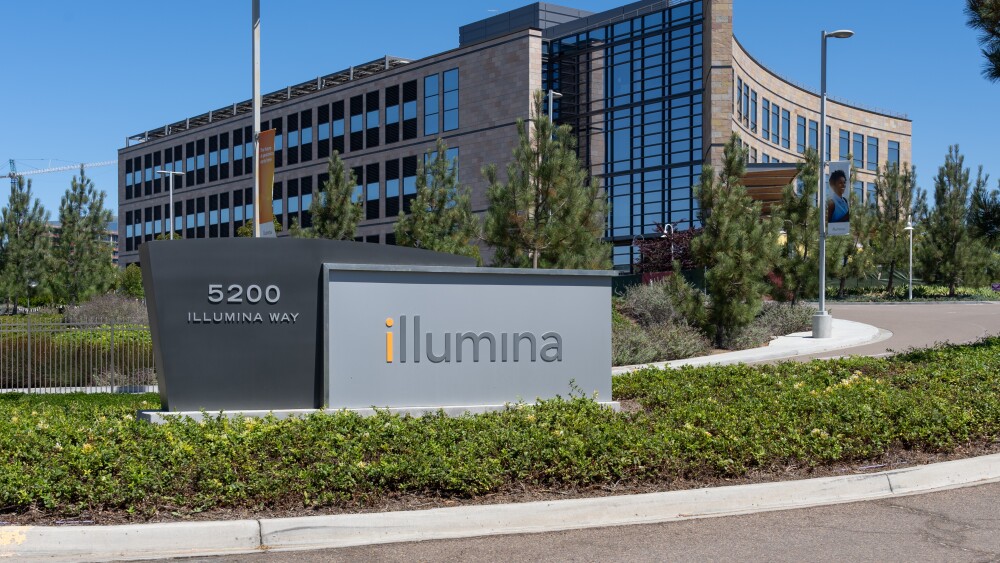The 21st annual Kyoto Prize Symposium this week celebrates the three latest laureates of the Kyoto Prize, Japan’s highest private award for global achievement, during live and online events co-hosted by University of California, San Diego and Point Loma Nazarene University.
Symposium’s live and online events will feature global award winners discussing technology, science and philosophy; San Diego and Tijuana students to receive university scholarships
SAN DIEGO, March 28, 2022 /PRNewswire/ -- The 21st annual Kyoto Prize Symposium this week celebrates the three latest laureates of the Kyoto Prize, Japan’s highest private award for global achievement, during live and online events co-hosted by University of California, San Diego and Point Loma Nazarene University.
A virtual benefit gala and opening ceremony honoring the laureates will occur Wed., March 30, PDT-6:30pm, presided by Symposium and Gala Chair Mr. Kazuo Koshi, Executive Chairman of MUFG Americas Holdings and its U.S. subsidiary, MUFG Union Bank. The evening will culminate in the presentation of the 2022-2023 Kyoto Prize scholarships, valued at up to US$10,000 or MXN100,000 each, to six outstanding high school seniors from the San Diego-Baja region. No admission fee to view the livestream will be charged to guests who register HERE (https://bit.ly/kps2022gala) in advance. Anyone interested in supporting the event with a voluntary tax-deductible contribution can become a sponsor by calling (858) 733-0323.
Free Public Lectures Featuring Latest Kyoto Prize Laureates
The Kyoto Prize Symposium’s March 30-31 lectures are also free and open to the public for those who register using the links below:
- Wed., March 30, 2022, PDT-10:00-11:30am (virtual, via video):
“A Journey Through Computer Science,” featuring Prof. Andrew Chi-Chih Yao, Ph.D.,
Computer Scientist and 36th Kyoto Prize Laureate in Advanced Technology
No admission fee for registered guests; please register here (or visit https://bit.ly/kps2022technology) to get log-in instructions well before this virtual, online event.
Prof. Yao serves as Dean of the Institute for Interdisciplinary Information Sciences at Tsinghua University and held prior teaching positions at both MIT and Stanford. His work has opened new frontiers in the field of computer science while contributing cutting-edge research in multiple areas, including computational complexity, data security, and quantum computing, by establishing innovative, fundamental theories for computation and communication.
“Starting in the 1970s, Professor Yao anticipated and enabled the increased scope of digital technology worldwide, providing fundamental tools to expand the opportunities and mitigate the risks,” said Professor Russell Impagliazzo of UC San Diego’s Computer Sciences and Engineering Department. “His work underpins applications that we use today, including network security, data privacy, e-commerce, blockchain technology, cryptocurrencies, and distributed computing, as well as cutting edge ideas such as quantum computation.”
- Wed., March 30, 2022, PDT-1:30-3:00pm (in person):
“Regulation of Transcription in Animal Cells: A 50-Year Journey Revealing an Expanding Universe of Factors and Mechanisms,” featuring Prof. Robert G. Roeder, Ph.D.,
Biochemist, Molecular Biologist, and 36th Kyoto Prize Laureate in Basic Sciences
No admission fee for registered guests; please register here (or visit https://bit.ly/kps2022science) to get driving and parking instructions well before this live, in-person event at Institute of the Americas in La Jolla.
Robert G. Roeder serves as Arnold and Mabel Beckman Professor of Biochemistry and Molecular Biology at The Rockefeller University. Over more than 50 years of pioneering research, Professor Roeder has revealed the principle of the regulatory mechanism of gene transcription in eukaryotes. In addition to discovering the three main RNA polymerases, he is credited with identifying basic transcription factors, including one of the first gene-specific factors, and regulators in transcription from chromatin, making profound contributions to the life sciences.
“Over five decades of pioneering research, Roeder has illuminated the mechanism of gene transcription, directly and indirectly supporting countless new breakthroughs in the biological sciences,” said Distinguished Professor James Kadonaga, Amylin Endowed Chair in Lifesciences Education and Research at UC San Diego. “One recent example is the dramatic development of antiviral treatments, such as Remdesivir. The discovery of many drugs for COVID-19, AIDS, and other viral diseases relies upon the knowledge that has been provided by Roeder and other colleagues in the transcription field.”
- Thurs., March 31, 2022 PDT-4:00-5:30pm (virtual, via video):
“How to React to a Change in Cosmology,” featuring Prof. Bruno Latour, Ph.D.,
Philosopher and 36th Kyoto Prize Laureate in “Arts and Philosophy”
No admission fee for registered guests; please register here (or visit https://bit.ly/kps2022arts) to get log-in instructions well before this virtual, online event.
Bruno Latour, Professor Emeritus at the Paris Institute of Political Studies, revolutionized the conventional view of science by treating nature, humans, laboratory equipment, and other entities as equal actors, and describing technoscience as the hybrid network of these actors. Prof. Latour’s philosophy re-examines “modernity” based on the dualism of nature and society, influencing diverse disciplines with multifaceted activities that include proposals to address global environmental issues.
“Latour achieved early academic acclaim as co-author of the 1979 book Laboratory Life, based on two years he spent observing scientists at the Salk Institute in San Diego,” said Prof. John Evans, Co-director of the Institute for Practical Ethics at UC San Diego. “His criticisms and defenses of scientific thinking have burnished his reputation as a sociologist and philosopher of science. Today, with trust in science at a low point, Latour’s deeper understanding of the scientific enterprise offers a way forward.”
“It is always an honor and a pleasure to welcome world-leading thinkers to San Diego,” said Ray McKewon, chair of the Kyoto Symposium Organization. “We are delighted to host these Kyoto Prize laureates, and to introduce this year’s Kyoto Prize scholarship recipients, whose high school achievements already foretell great promise for the next generation.”
The Kyoto Prize
The Kyoto Prize is presented each year by Japan’s non-profit Inamori Foundation to individuals and groups worldwide who have demonstrated outstanding contributions to the betterment of society, in “Advanced Technology,” “Basic Sciences,” and “Arts and Philosophy.” The prize consists of academic honors, a gold medal, and a cash gift of 100 million yen (more than $800,000) per category, making it Japan’s highest private award for global achievement.
The Inamori Foundation
The Inamori Foundation is a non-profit established in Kyoto, Japan, in 1984 by Dr. Kazuo Inamori, founder of Kyocera Corp. and honorary advisor to both KDDI Corp. and Japan Airlines. Inamori created the Kyoto Prize in reflection of his belief that people have no higher calling than to strive for the greater good of humankind and society, and that the future of humanity can be assured only when there is a balance between scientific progress and spiritual depth.
The Kyoto Symposium Organization
The Kyoto Symposium Organization is a San Diego-based 501(c)3 non-profit established to support the Kyoto Prize Symposium and Kyoto Scholarship programs with the Inamori Foundation and co-hosts University of California, San Diego and Point Loma Nazarene University. Since 2001, the Symposium has generated more than $4.3 million for scholarships, fellowships and other educational opportunities in the San Diego-Baja region.
![]() View original content:https://www.prnewswire.com/news-releases/latest-kyoto-prize-laureates-to-share-stories-of-life-and-innovation-free-to-public-march-30-31-pdt-301511429.html
View original content:https://www.prnewswire.com/news-releases/latest-kyoto-prize-laureates-to-share-stories-of-life-and-innovation-free-to-public-march-30-31-pdt-301511429.html
SOURCE University of California, San Diego




